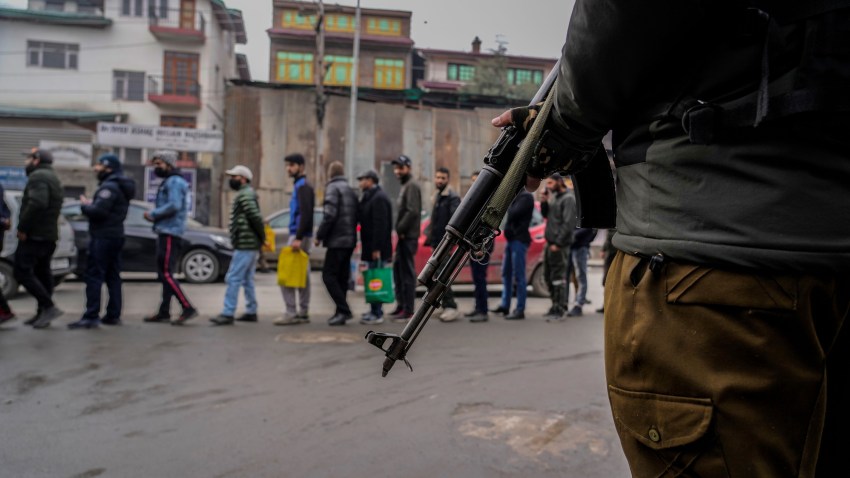Despite the appearance of calm, a quiet war is afoot in the Kashmir Valley. The disputed border region tucked away in the northernmost Himalayas has been the epicenter of violent militancy and contested relations between India and Pakistan going back over seven decades. Now New Delhi’s latest effort to establish “peace and normalcy” in the Jammu and Kashmir region has muzzled even the most fearless and vocal of Kashmiris.
The crackdown has its origins in the abrupt revocation in August 2019 of Article 370, which provided the disputed area with a degree of semi-autonomous rule. In addition, New Delhi bifurcated the erstwhile Jammu and Kashmir state into two federally administered territories—Jammu and Kashmir, and Ladakh. But if the move has pacified the once-restive region, it is “the peace of the graveyard,” as one local teacher told WPR. “If you don’t allow anyone to speak, to write or to protest without facing detention, it is as good as being alive in a graveyard.”
An extraordinary level of state surveillance and intimidation goes into imposing this collective silence. Fundamental rights of free speech have been suspended, and any dissenting voices, online or offline, are now legitimate targets. In an act of self-censorship, newspapers now eschew critical reporting or opinion pieces that challenge New Delhi’s official narrative. Some journalists have been charged with unlawful activities and placed on a no-fly list, preventing them from flying abroad. Sharing or liking social media posts critical of the ruling Hindu-nationalist Bharatiya Janata Party, or BJP, government can result in imprisonment. Academics, teachers, government employees, businesspeople and human rights activists—all have been subjected to police raids and detention for acting against the interest of the state.

